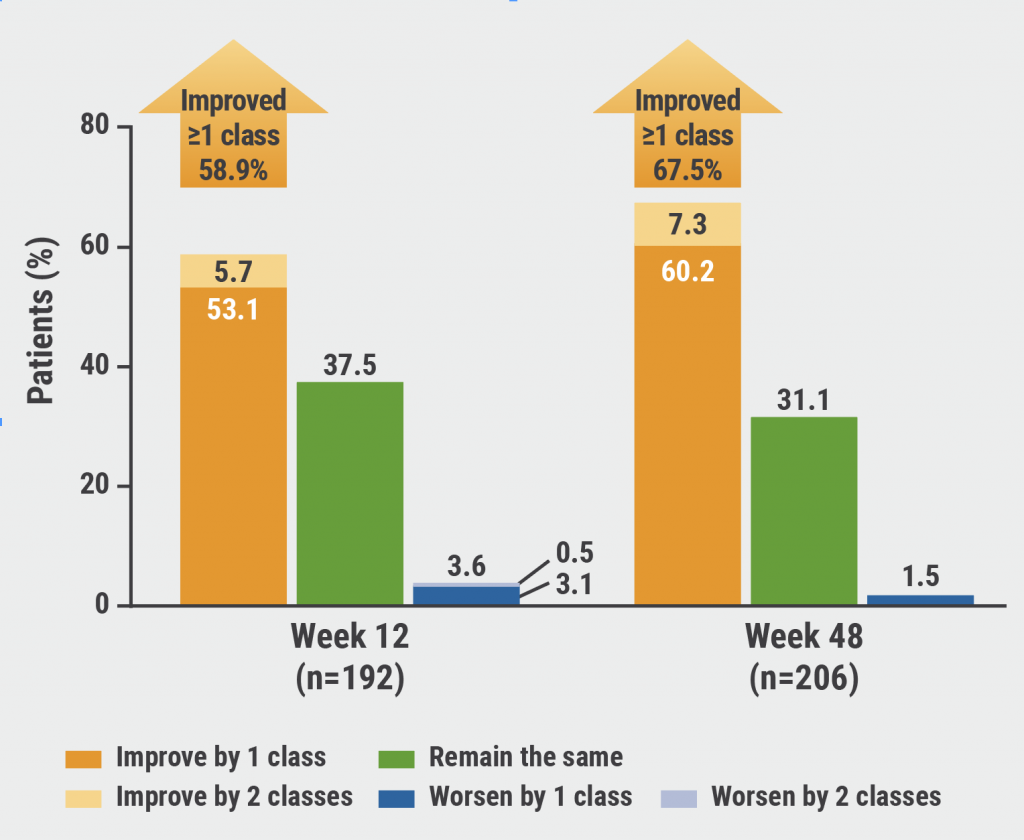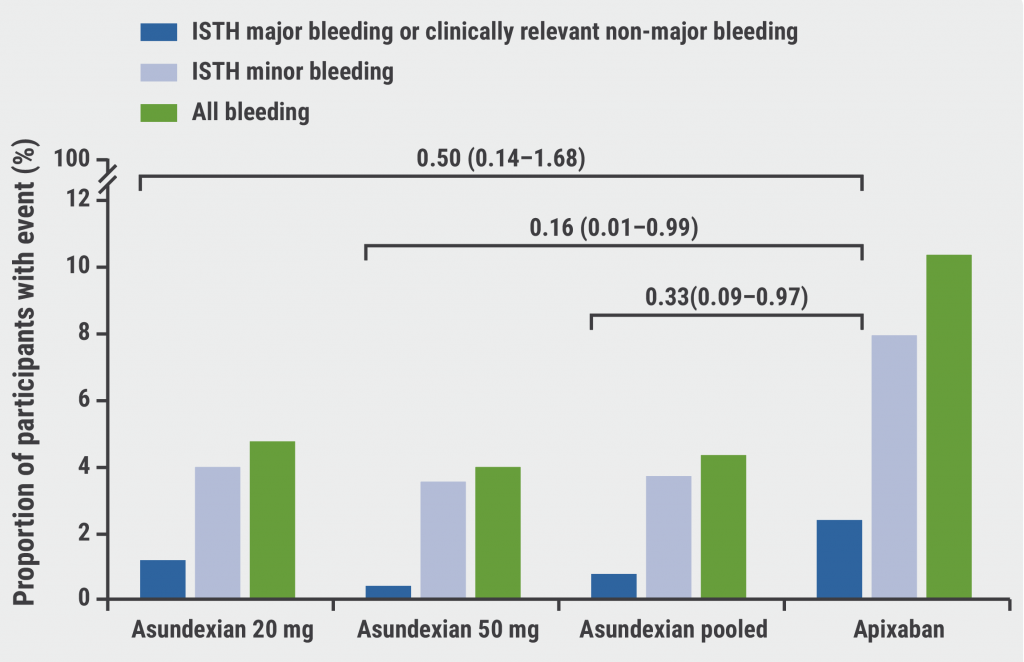https://doi.org/10.55788/bd75f31a
The multicentre, double-blind, randomised-controlled, phase 2 GIPS-IV trial (NCT02899364), presented by the study’s lead author, Dr Marie-Sophie de Koning (University Medical Center Groningen, the Netherlands), explored the feasibility of sodium thiosulfate for the preservation of cardiac function after ST-elevation myocardial infarction (STEMI) [1].
The rationale behind this trial was that the strong antioxidant sodium thiosulfate produces hydrogen sulfide, which in turn has been shown to reduce ischaemia-reperfusion injury after a heart attack in an abundance of preclinical evidence. Sodium thiosulfate became the leading candidate donor for hydrogen sulfide because it has already demonstrated to be safe and effective in humans for other indications.
GIPS-IV enrolled 380 patients treated for a first myocardial infarction (MI). Participants were randomly allocated to receive 2 infusions of either sodium thiosulfate or placebo: 1 upon admission to the cardiac catheterisation laboratory and the other 6 hours later. The primary endpoint was a reduction of the myocardial infarct size at 4 months, as measured with a cardiac MRI. Key secondary endpoints included left ventricular ejection fraction and NT-proBNP levels at 4 months, and peak creatine kinase-MB during MI.
At 4 months, the trial did not meet its primary or secondary endpoints (see Figure). Dr de Koning explained, “We knew that ischaemia-reperfusion injury is one of the most challenging targets of therapy because many compounds have failed so far, but there was a lot of very promising experimental evidence that this compound could work. We were disappointed that, despite a very well-conducted trial, we did not see any effect on infarct size or any of the secondary endpoints."
Figure: No statistical difference between patients receiving sodium thiosulfate or placebo in infarct size in the GIPS-IV study [1]
 STS, sodium thiosulfate.
STS, sodium thiosulfate.
Safety was adequate; major adverse cardiovascular events were comparable in both study arms. Rates of the known side effects of STS, i.e. nausea and vomiting, were increased after administration of study medication in the sodium thiosulfate group.
"Based on this study, we now have evidence that sodium thiosulfate is not working,” Dr de Koning said. "However, we cannot exclude that sodium thiosulfate could make a bigger difference in regions of the world where the quality or efficiency of heart attack treatments are lower than in the Netherlands, where patients may experience a higher infarct size overall, and thus stand to benefit more from treatments that may reduce the damage to the heart muscle."
Although sodium thiosulfate showed no benefits for reducing injury to damaged areas of the heart muscle 4 months following a heart attack, Dr de Koning concluded by saying, “It's too early to tell whether hydrogen sulfide as a whole doesn't work for ischaemia-reperfusion injury. It's possible that what's needed is a stronger hydrogen sulfide donor compound or a prolonged administration after reperfusion.”
- De Koning MS, et al. The Groningen Intervention Study For The Preservation Of Cardiac Function With Sodium Thiosulfate After St-segment Elevation Myocardial Infarction (GIPS-IV). Abstract 410–12, ACC 2022, 2–4 April, Washington DC, USA.
Copyright ©2022 Medicom Medical Publishers
Posted on
Previous Article
« ICM-guided management did not improve MACE after MI Next Article
Low-resource countries benefit from global STEMI initiative »
« ICM-guided management did not improve MACE after MI Next Article
Low-resource countries benefit from global STEMI initiative »
Table of Contents: ACC 2022
Featured articles
Alirocumab significantly reduces high-risk coronary plaques
Highlighted Original Research
POISE-3: Tranexamic acid for non-cardiac surgery
Treating chronic mild hypertension during pregnancy leads to better outcomes
New VOYAGER PAD data: Should patients with both PAD and CKD get rivaroxaban?
Alirocumab significantly reduces high-risk coronary plaques
Aggressive warming during non-cardiac surgery does not improve outcomes
Heart Failure and Cardiomyopathy
DIAMOND trial: Patiromer lowers risk of severe hyperkalaemia
Replacing septal reduction therapy with mavacamten for HCM
Omecamtiv mecarbil does not impact exercise capacity of patients with HFrEF
Symptomatic obstructive hypertrophic cardiomyopathy: long-term mavacamten control
Interventional and Structural Cardiology
COMPLETE revascularisation improves angina-related QoL
Plot twist for negative FAME 3 results: early QoL benefits of PCI
1-year CLASP TR results support tricuspid regurgitation repair
Head-to-head: post-TAVR edoxaban not better than DAPT
Chocolate Touch vs Lutonix catheters
No FLAVOUR difference between FFR and IVUS for PCI guidance
Myocardial Infarction
Low-resource countries benefit from global STEMI initiative
Sodium thiosulfate ineffective at cardiac protection
ICM-guided management did not improve MACE after MI
Prevention
PACIFIC-AF: Low bleeding rates for asundexian in atrial fibrillation
RCT-IVVE trial: Do HF patients benefit from annual flu shots?
TRANSLATE-TIMI 70: Primary endpoint met but safety concerns for vupanorsen
Lipoprotein(a) slashed by 98% in APOLLO trial
Dietary intervention from your supermarket
Related Articles

June 15, 2022
ICM-guided management did not improve MACE after MI

© 2024 Medicom Medical Publishers. All rights reserved. Terms and Conditions | Privacy Policy

